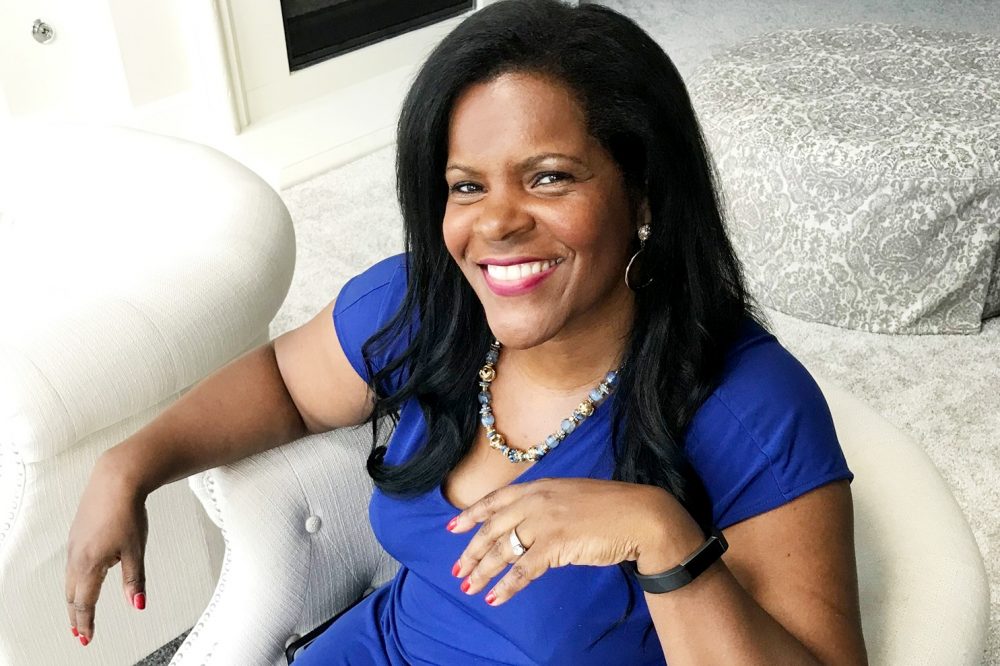An EMERGE Pre-Conference Interview with Speaker Lynnette Khalfani-Cox
By Elizabeth Vivirito, Financial Health Network

Lynnette Khalfani-Cox
We sat down with Lynnette Khalfani-Cox, New York Times best-selling author and CEO/Co-Founder of AskTheMoneyCoach.com, for a candid conversation about why providers should know their customers’ unique financial stories, what works to inspire consumers to act, and the importance of empathy in financial services.
Tell us what you do.
I teach people about personal finance. The vast majority of my work involves very practical, bread and butter pocketbook issues: How to save more money, improve credit ratings, get out of debt, build wealth, buy a first home, finance a business.
What inspires you to do this work?
What has inspired me to do this for 14 years is that I know that by mastering your finances you’ll have a richer life overall, be less inclined to get a divorce, be more patient with your kids. You’ll have better physical and emotional well-being.
My parents were poor, and they divorced when I was 7 years old. But they imparted some great financial wisdom to their five children: Have a strong work ethic, give it your all, go for it in life. They raised the bar and had high standards for us. All five children went to college and grad school. I decided early on that I wanted to make an impact, that I wanted to change lives.
You’re constantly out there in the media, talking to people on a daily basis. What are some of the most important lessons you’ve learned when talking to people about money?
People don’t respond to logic, facts or figures, though they may “get” it. The average African-American woman in America has a net worth of $5. Will that fact make them change or try to build wealth? Probably not. Statistics alone don’t move the needle. They don’t get people to act.
What does inspire people and give them a grander vision, what makes them say, “Maybe I can and should do that too,” is seeing it in real life, being able to relate to it via storytelling. When we’re honest about our own lives and our finances and struggles, other people can relate to that. Perhaps the single biggest compliment I’ve received is that I am relatable and honest. I had $100K in credit card debt. I took three years to pay it off, then I wrote a book about it.
What advice do you have for banks, credit unions and the like, as they get in the business of improving consumer financial health?
First: Hang your assumptions at the door. Ask questions, and don’t assume you know a person’s circumstances. Seeing a certain demographic — low-income, woman, Latino, African-American, underbanked — people make a whole set of assumptions. That doesn’t serve the client, and it also does a disservice to the financial services community that results in lost opportunity.
Second: Don’t leave your future customer base behind based upon the past, or what you think you know about the present. I find this a LOT. If you’re not already high net worth, or in a certain demographic pool or track, there’s not much financial institutions can offer you — that’s a huge mistake. There’s opportunity in promoting customer retention and loyalty when your clients are trying to pull it all together.
I once did a conference where I described two women: this woman is single, a mother of two, she has been divorced, she’s in debt, has poor credit, had a car repossessed, fired from her job. The other woman: married, has a 529 plan for her kids, has a six-figure 401K, and an advanced degree. Which one do you want for your client? Woman two, of course. But what would you say if I said they were the same woman? They’re me. In the course of a decade, I went from here to there.
The customer you might see before you today, with just a little care and attention, can very quickly become a productive financially stable client. You can help that person engineer a financial turnaround. If you’re a part of that success story, the client is “sticky” — they remember the banks and financial institutions that stuck with them from the beginning.
What advice would you give to EMERGE attendees, to galvanize them to action?
Do your own mini-test cases and see what happens. You don’t have to do it at the corporate level. Is there a colleague or someone who works in HR or the mail room that you can help change their financial life? Use compassion, communication, and understanding, and don’t make assumptions. Do something different than what you’ve been doing, and with a different potential client. Find one way to reach out to a new potential client.
Also, I stress the use of technology because I personally believe that tech is, or can be, an equalizer in so many areas. I’d encourage banks, credit unions, fintech, and others to keep pushing for low-cost creative solutions to problems that use technology in a way that can be massively helpful to people. Tech offers low-cost and accessible solutions. Use the best of what you have. We have so many problems to solve, and when it comes to financial health, we have the tools to do it. The question is, do we have the willingness?
Read about “Perspectives In PFM: Going Further To Inspire Action,” session at the EMERGE Consumer Financial Health Forum. Learn More and Register Today >>
